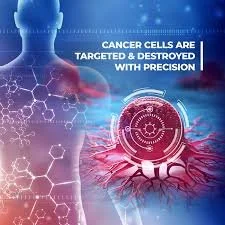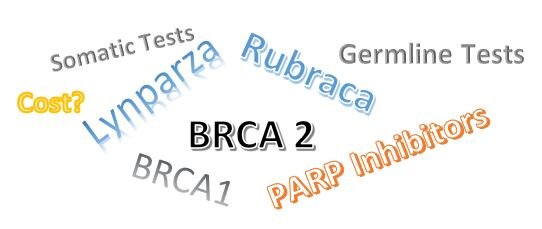Recently presented data has shown that there is a clinical improvement in median radiologic progression-free survival (rPFS) when olaparib (Lynparza) is used in combination with abiraterone (ZYTIGA) compared to abiraterone alone in men with metastatic castration-resistant prostate cancer (mCRPC).
Long-Term ADT Affects PSMA Scan Outcomes
Pembrolizumab is Effective in Some Men with Untreatable Advanced Prostate Cancer
Xofigo (Radium-223) - Cautionary Information
The European Medicines Agency (EMA) has recommended that the use of Xofigo (Radium-223) be restricted. The restrictions, because of safety and efficacy concerns in men with castrate resistant prostate cancer (mCRPC), include that Xofigo can be used only after two other treatments have been taken; when other therapies cannot be used and not in combination with other 2nd line hormone therapies.
AR-V7 Liquid Biopsy Coming of Age
Once a man is castrate resistant and moves on a second line hormone therapy drug like Zytiga or Xtandi (aka AR inhibitors) it is inevitable that the Zytiga or Xtandi will also become ineffective.
When this happens, the question that comes is what should be the next treatment? Generally, the options currently available are either to move to the drug not initially used ( Zytiga if Xtandi was first used or Xtandi if Zytiga was used) or instead to use taxane chemotherapy (Taxotere aka docetaxel).
FDA Accepts A New Endpoint
Update 1 - The Metastatic Prostate Cancer Project
First Line Treatment for Newly Diagnosed Metastatic Prostate Cancer
Initially being diagnosed with metastatic, or advanced prostate cancer is not great. Metastatic prostate cancer is not curable and will be terminal if you don’t die from another cause.
We now have a number of what we consider second-line treatments for prostate cancer, drugs like Zytiga, Xtandi and Taxotere (chemotherapy).
We are beginning to recognize the value of the early use of these second line drugs along with first line ADT for men who are initially diagnosed with metastatic prostate cancer.
Survival and Bone Metastases
Metformin, ADT and Advanced Prostate Cancer
Abiraterone or Docetaxel?
The Truth About Provenge
A Subtype of Prostate Cancer Identified Along with A Possible Therapy
A newly identified subtype of prostate cancer characterized by the loss of the gene CDK12 was found to be more common in men with metastatic prostate cancer compared to non-metastatic disease. What makes this discovery very important is that prostate cancer with the inactivation or loss of the CDK12 gene seems to be responsive to checkpoint inhibitors.
More Radium is Not Better
African American Men Might Have a Survival Advantage Over Caucasian Men!
177Lu-PSMA-617 Clinical Trials
Endocyte, Inc. announced that it has enrolled the first man into its phase 3 VISION study of 177Lu-PSMA-617 as a clinical therapy. Cancer ABCs has had a number of men asking about the trial.
VISION is an open-label, randomized trial assessing the addition of radiolabeled prostate-specific membrane antigen to standard therapy for PSMA-positive, previously treated metastatic castration-resistant prostate cancer (mCRPC). The study will enroll 750 men in total, with the primary endpoint being overall survival.
Currently, there are six different trials evaluating 177Lu-PSMA-617 actively recruiting men worldwide. In the United States they are at Weill Cornell Medical Center in New York, UCLA in Los Angles, and one site in Houston Texas. There are also trials in multiple locations in the UK, in Italy and in Australia. For additional trial information and locations go to
https://clinicaltrials.gov/ct2/results?term=177Lu-PSMA-617&Search=Search
Joel T. Nowak, MA, MSW wrote this Post. Joel is the CEO/Executive Director of Cancer ABCs. He is a Cancer Thriver diagnosed with five primary cancers - Thyroid, Metastatic Prostate, Renal, Melanoma, and the rare cancer Appendiceal cancer.
Provenge and Clinical Outcomes by Baseline PSA Level
Provenge (Sipuleucel-T) is the first FDA approved cancer vaccine and it is still the only immune therapy approved for Prostate Cancer. In a post-hoc analysis it was demonstrated that those men who have lower PSA scores had a superior overall survival. The analysis also showed that men who had Provenge treatment have a lower risk of cardiovascular events.
Young Men with Appendicitis Have A Nine Fold Increased Risk for Developing Lethal Prostate Cancer
Researchers have recently found that men under the age of 20 years who have an appendicitis are up to nine times more likely to develop prostate cancer later in life. The study that came to this conclusion was performed by scientists at Orebro University in Sweden. It is one of the first to highlight this increase in the risk for the development of prostate cancer.
Treatments for Advanced Prostate Cancer May Work Better in Black Men
Black men are more likely to be diagnosed with prostate cancer at a younger age, with an advanced stage, and with a higher grade. Black men are also twice as likely to die from prostate cancer than white men. Despite these facts, these two studies show that certain treatments for advanced metastatic prostate cancer may work better in black men.
A Generic Version of Zytiga Has Been Approved by the FDA
The U.S. Food and Drug Administration (FDA) has approved a generic version of Zytiga, the new drug’s name is Yonsa. It is a novel formulation of abiraterone acetate that needs to be used in combination with methylprednisolone for the treatment of men with metastatic castration-resistant prostate cancer (mCRPC).






